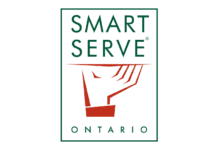As COVID-19 continues to cause fear and panic, the foodservice industry has been one of the hardest-hit sectors, resulting in suspension of dine-in services at some establishments and, in some cases, full-on closures.
But for those restaurants offering takeout and delivery, employees are still coming into contact with food that goes straight into the customers’ home, presenting a risk of transmission of the disease if operators aren’t especially careful.
Margaret Spence, manager of Education and Special Projects at Pickering, Ont.-based food-safety company Traincan, stresses the importance of maintaining a high standard of food safety in restaurants, especially during times like these.
“In order to prevent foodborne illnesses, good food-safety practices are essential all the time. The bottom line is food handlers must not be allowed to work when sick,” says Spence. “Employee food-safety training; enforcement of strict employee-hygiene policies; stringent cleaning and sanitizing and hand washing are our best defense tools against this virus and other pathogens that can make people sick.”
Across most of the country, food-safety regulation states operators must have at least one person per shift with a food-handler certification. This can be a problem for restaurants reducing hours and staff to cope with decreased traffic due to the societal practice of social distancing and self-isolation.
“I expect many operators are wondering how social distancing can realistically happen in their operations. Brainstorm with your team to see how you can improve your standard workflow process. Food handlers must all work together to prevent the transmission of this virus,” says Spence.
Another problem restaurant operators face is the increased reliance on delivery workers to get food to customers, which means food-safety procedures must be practiced beyond their own kitchen doors.
“Many provinces are telling restaurants and bars to close, except for take-out and delivery. Therefore, operators must continue to ensure their food handlers are preparing food safely. For operators using delivery services, ask your food-delivery services what they’re doing to ensure their employees are delivering food safely,” says Spence.
A good solution to these problems, she says, is taking advantage of closures to train staff so they are properly equipped to handle situations like these.
“I know many restaurateurs are taking proactive measures to battle this virus. For example, one of our clients ─ a fine-dining restaurant chain ─ has closed its doors temporarily in order to help ‘flatten the curve,’ while seasonal operations such as golf courses are postponing their opening by a month,” says Spence. “They’re using this time to conduct food-safety training for all of their food handlers and managers while the doors are closed.”
Going forward, as times remain uncertain, Spence stresses the importance of staying informed and up to date, putting both you, your employees and your customers in the safest possible position.
“Stay abreast of the news, follow food-safety protocols already in place and talk regularly with your workforce to ensure they’re clear about how their actions are directly linked to food safety,” says Spence.
“Take this downtime to conduct a HACCP analysis of your operation. Ask yourself if there are any hazards that could be eliminated or prevented. Continue to communicate the importance of everyone’s role in preventing transmission of all types of foodborne pathogens.”

















